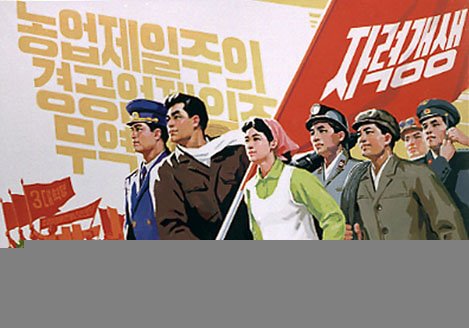Good that the British TUC(not actually much good at defending the rights of UK workers ) is starting to wake up to the fact that south Korea is a very bad place for workers indeed . Of course the title should be "south Korea's broken promises' . The article does not mention the dependent and neo-colonial nature of sk but it is good that the British trade movement is ending its long silence on the repression of workers in south Korea.
It goes without saying that the south Korean puppet regime is an enemy of the working people and the trade union movement. All agreements like the south Korea -EU are aiming at increasing the dependency of south Korea on world monopoly capital and exploiting south Korean workers even more !
http://strongerunions.org/2015/11/24/koreas-broken-promises-sound-alarm-over-oecd-membership-trade-agreements/
(south)Korea’s broken promises sound alarm over OECD membership & trade agreements
South Korea is often held up as the poster boy for international development. A poverty-stricken country after the war with the North, and ruled by a military dictatorship from 1961 to 1987, it is now a member of the G20 and the rich democracies club of the OECD. Its bilateral trade agreement with the European Union is hailed as one of the most demonstrably successful new-style trade agreements. It is also, of course, a member of the International Labour Organisation (ILO). And, frankly, Korea is unworthy of its role on the global stage, because of the way it treats trade unions.Korea is well on the way to becoming a pariah state in terms of trade union rights. And the impunity with which its broken promises have been met explains why the British trade union movement has become a lot less willing to accept trade agreements and the expansion of international institutions.
On top of years of abuses, the Korean Government of President Park Geun-hye, daughter of the dictator who ran Korea from 1961 until his assassination in 1979, has recently tightened the screw on trade unions opposing the exploitation of workers. Last week, TUC General Secretary Frances O’Grady joined a global union protest against attacks on the Korean Public Services and Transport Workers Union (KPTU) on 6 November when a high altitude protest by a union chapter led to a raid by 200 police not only on the local office, but the KPTU head office, confiscating union documents and computers. And now the offices of the TUC’s sister organisation in Korea – the Korean Confederation of Trade Unions (KCTU) – have been raided, its President in hiding in the Jogyesa Buddhist Temple in Seoul, for organising protests against the new trade union law.
The G20 has no rules to abide by, but the other transnational agreements and institutions mentioned above all require signatories to uphold the rights of workers to freedom of association, the right to strike and free collective bargaining. And Korea is getting worse and worse, riding roughshod over those principles. ILO membership requires countries to abide by and promote the eight core labour conventions, including C87 and C98 on freedom of association and collective bargaining, even if that country has not formally ratified them. Before Korea joined the Organisation for Economic Co-operation and Development (OECD) in 2010, there was a “special monitoring process” on Korean workers’ rights from 1997 to 2006, and it had some positive effects including the legalisation of the KCTU. When Korea finally joined the OECD in 2010, it pledged to abide by the two key ILO workers’ rights conventions. And when the EU-Korea free trade agreement came into force in 2011, the same commitment was included in the agreement.
There is even a mechanism in that trade agreement that is supposed to address any breaches of the commitment – the EU-Korea Domestic Advisory Group, on which the ETUC is represented, along with European employers. The ILO does of course have supervisory mechanisms of its own – the Committee of Experts and the tripartite Committee on Freedom of Association, both of which have criticised Korea for abuses of worker’ rights. These bodies can only issue reports, but the European Commission could impose trade sanctions on Korea for egregious breaches: a stage which we must have reached, if only the European Commission and the member governments of the European Union were serious about workers’ fundamental rights. The EU-Korea DAG, currently being reconstituted, has protested in the past about Korea’s broken promises, but the European Commission has taken no concrete action on the complaint. The OECD, likewise, has done nothing about Korea’s broken promises.
This is why trade unions are no longer convinced that unenforceable labour chapters in trade agreements (like CETA or TTIP) will have any effect, and why trade unions are now insisting that countries seeking to join the OECD like Colombia, or even the EU, like Turkey, should demonstrate their compliance with core labour standards before being allowed to join, not just make idle promises. Attempts by the OECD to bring about worker rights improvements in Colombia as part of the Accession process are unconvincing – once a country is in the OECD and the monitoring stops, the countries can revert to the bad old ways.
KCTU President Han recently said:
“Today, the government and the police have trampled on the rights of the KCTU and workers in Korea. The anti-democratic, anti-worker policies of the Park Geun-hye government roused the indignation of the working people. We will broaden worker solidarity and fight to stop the regressive labour reform bill which will make it easier for employers to dismiss workers, cut wages and create more precarious employment. These reforms will not create the jobs the government promises but only ensure that all jobs are insecure and poorly-paid.”

.jpg)
No comments:
Post a Comment